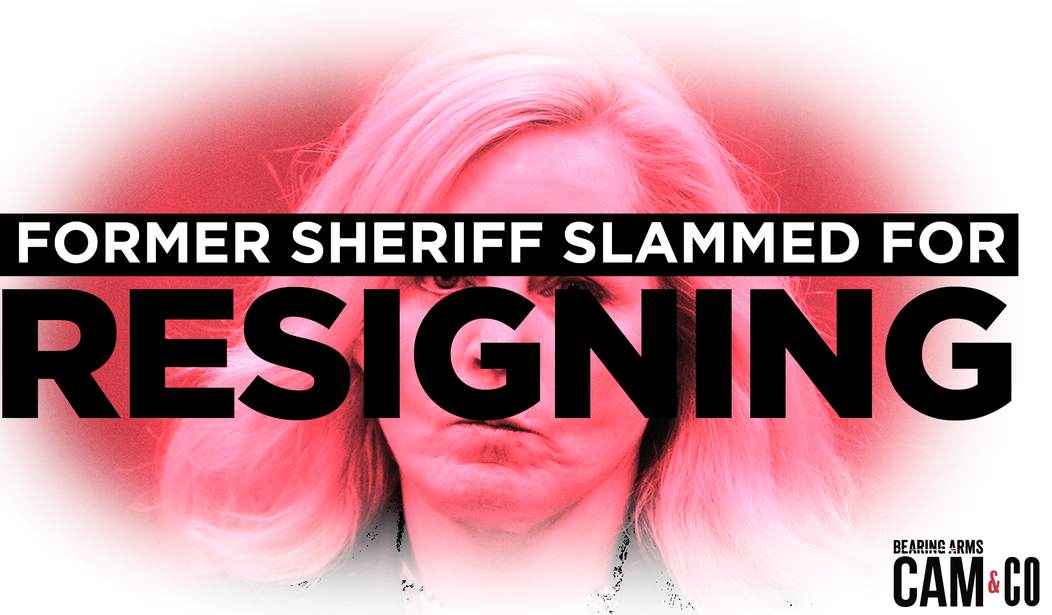The now-former sheriff in Santa Clara County won’t be able to escape the public’s scrutiny and contempt for her cowardly decision to resign from office while jurors were weighing whether to convict her for her alleged role in a pay-to-play scheme involving the issuance of concealed carry permits, and as it turns out, she won’t be able to escape a jury’s verdict either.
The editorial board of the East Bay Times, which called on Smith to resign more than two years ago after she invoked her Fifth Amendment right against self-incrimination instead of answering the questions of a criminal grand jury investigating the corruption allegations, declared on Wednesday that Smith “made a mockery of the judicial system” by resigning from office even as the jury in her civil trial was weighing the evidence against her.
Smith should have resigned two years ago, when the extent of her failings first came to light. At the very least, she should have quit last December, when a Santa Clara County civil grand jury called for her removal from office and accused her of six counts of corruption and willful misconduct.Instead, she stalled and ran out the clock. Now, almost a year later, San Mateo County Superior Court Judge Nancy Fineman will rule Wednesday on a request by Smith’s attorney, Allen Ruby, to dismiss the accusation. He argued Monday that the penalty she faces — removal from office — is now meaningless.That argument will likely carry the day, from a legal perspective, however unfortunate it would be. Allowing Smith to quit at this stage of the trial enables her to avoid accountability and robs the public of the closure it needs.
Fineman’s response to the arguments highlighted the lack of precedent for removal-from-office trials spurred by a civil grand jury; the only other one in known memory was in 2002 involving the ouster of a Mountain View city councilmember. The trial is conducted in the same structure of a criminal trial and adheres to a reasonable doubt standard for guilt, but is held in civil court.Fineman is presiding because the local judiciary recused itself, and the county recused itself, hence why Markoff, a San Francisco assistant district attorney, is prosecuting.The judge referenced several times the civil-criminal hybrid nature of the trial, and voiced concern about empowering defendants, after opting into trial, engineering their own conclusions. She also questioned whether a resignation legally had the same effect as a removal via jury verdict and judicial sentencing.“There’s a difference: A removal is forced and it’s a determination by a court,” Fineman said. “Why would this case allow the defendant to just, on her own, stop a case from going forward because she has resigned? She was not removed.”Ruby responded by saying that interpretation is not supported by the government code, 3060, that instructs how officials can be removed by a grand jury verdict.Markoff and Ruby also sparred over the collateral consequences of not allowing a verdict to be reached. Fineman and Markoff mentioned pension implications and eligibility to hold office in the future.That touched on another ambiguity by the hybrid standing of the trial. A 2013 law penalizes a public official’s pension benefits if they are found guilty of a felony corruption crime, and bars them from holding public office again. Both Fineman and Markoff appeared to be convinced that the law might apply because some of the current trial counts allege criminal elements.Ruby vehemently disagreed, arguing that from the outset, there were no felony conviction possibilities from the trial.Ultimately, Fineman returned to her initial assessment in refusing to end the trial.“I think removal is different than resignation. I think there has to be a chance to remove the defendant from office,” the judge said.“Retirement or resignation does not make a proceeding moot.”She then said declaratively: “I find this case is not moot even though the sheriff resigned.”









Join the conversation as a VIP Member